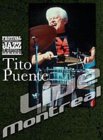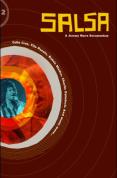![Radio Days [Blu-ray]](/pictures/1144327.jpg) Radio Days | Blu Ray | (20/02/2017)
from £14.84
| Saving you £N/A (N/A%)
| RRP
Radio Days | Blu Ray | (20/02/2017)
from £14.84
| Saving you £N/A (N/A%)
| RRP Woody Allen's gentlest and most unassuming movie, Radio Days isn't so much a story as a series of anecdotes loosely linked together by a voice-over spoken by the director. The film is strongly autobiographical in tone, presenting the memories of a young lad Joe (clearly a stand-in for Allen himself) growing up in a working-class Jewish family in the seafront Brooklyn suburb of Rockaway during the late 1930s and early 40s. In this pre-TV era the radio is ubiquitous, a constant accompaniment churning out quiz shows, soap operas, dance music, news flashes and Joe's favourite, the exploits of the Masked Avenger. Given Allen's well-publicised gallery of neuroses, you might expect childhood traumas. But no, everything here is rose-tinted and even the outbreak of war makes little impact on the easygoing, protective tenor of family life. Now and then Allen counterpoints his family album with the doings of the radio folk themselves (blink, and you'll miss a young William H Macy in the studio scene when the news of Pearl Harbour comes through). The rise to fame of Sally (Mia Farrow), a former night-club cigarette girl turned crooner, is the nearest the film comes to a coherent storyline. But most of the time Allen is content to coast on a flow of easy nostalgia, poking affectionate fun at the broadcasting conventions of the period and basking in the mildly rueful Jewish humour and small domestic crises of Joe's extended family. There aren't even any of his snappy one-liners, and the humour is kept low-key, raising at most an indulgent smile. A touch of Allen's usual acerbity wouldn't have come amiss. But for anyone who shares these memories, Radio Days will surely be a delight. On the DVD: Not much besides the theatrical trailer, scene menu and a choice of languages. The screen's the full original ratio, but nothing seems to have been done to enhance the soundtrack, and the dialogue's not always clear. A boost in volume may help.--Philip Kemp
![Great Performers Tom Dowd and the Language Of Music [2007]](/pictures/1076342.jpg) Great Performers Tom Dowd and the Language Of Music | DVD | (08/10/2007)
from £N/A
| Saving you £N/A (N/A%)
| RRP
Great Performers Tom Dowd and the Language Of Music | DVD | (08/10/2007)
from £N/A
| Saving you £N/A (N/A%)
| RRP Tom Dowd And The Language Of Music profiles the extraordinary life and legendary work of music producer/recording engineer Tom Dowd. Historical footage vintage photographs and interviews with a who's who list of musical giants from the worlds of jazz soul and classic rock shine a spotlight on the brilliance of Tom Dowd whose creative spirit and passion for innovative technology helped shape the course of modern music.Tom Dowd's credits include recording sessions with Aretha Franklin Ray Charles Eric Clapton Otis Redding John Coltrane The Allman Brothers Band Tito Puente Dizzy Gillespie Thelonious Monk Cream Rod Stewart Lynyrd Skynyrd Booker T & the MG's and countless other musical luminaries.
 Tito Puente - Live In Montreal | DVD | (12/01/2004)
from £19.98
| Saving you £-2.99 (-17.60%)
| RRP
Tito Puente - Live In Montreal | DVD | (12/01/2004)
from £19.98
| Saving you £-2.99 (-17.60%)
| RRP Tito Puente the 'King Of Mambo' performs 'Oye Como Va' and 'Tito's Especiale' a mixture of Latin music and jazz.
![Latin Nights [1995]](/pictures/1069553.jpg) Latin Nights | DVD | (05/03/2007)
from £10.99
| Saving you £14.00 (127.39%)
| RRP
Latin Nights | DVD | (05/03/2007)
from £10.99
| Saving you £14.00 (127.39%)
| RRP Meet Tito Puente Memo Acevedo and other accomplished personalities of the Latin music scene in this scintillating performance documentary Latin Nights. Celebrating the rich musical tradition of Latin America Latin Nights pays tribute to accomplished Latin musicians who maintain their cultural identity as the live their individual stories after their Diaspora to Canada. Latin Nights takes you into the nightclubs coffee houses and performance halls to show the powerful rhythms and the cool seductive melodies of the music.
 Beats Of The Heart - Salsa | DVD | (12/03/2007)
from £10.78
| Saving you £4.21 (39.05%)
| RRP
Beats Of The Heart - Salsa | DVD | (12/03/2007)
from £10.78
| Saving you £4.21 (39.05%)
| RRP Salsa refers not only to hot sauce but hot music - the exuberant dance music of Latino communities in New York and other cities in the Eastern U.S. as well as Puerto Rico and Cuba. Over the past 25 years salsa has profoundly influenced jazz and pop music while giving a focal point for a colourful distinctively Latin way of walking talking and dancing. From the barrios of New York City to the roots-culture of the Caribbean Salsa captures Latin music in all its joy vitality and improvisational brilliance. Celia Cruz is shown in rehearsal. Charlie Palmieri instructs a class of children in the seminal Latin rhythms - bomba mambo rhumba etc. Tito Puente plays music at a wedding in the Latin community. Ruben Blades demonstrates the ways politics and music can work together. The drumming and singing of Santeria followers shows the influence of African culture and a trip to Puerto Rico establishes the roots of mainland Latin culture. Through it all the rhythms and melodies of salsa provide a vital soundtrack for the emergence of an entire people.
![Mambo Kings, The (DVD) [1992]](/pictures/1048017.jpg) Mambo Kings, The (DVD) | DVD | (16/01/2006)
from £N/A
| Saving you £N/A (N/A%)
| RRP
Mambo Kings, The (DVD) | DVD | (16/01/2006)
from £N/A
| Saving you £N/A (N/A%)
| RRP With a suitcase full of song and hearts filled with passion two brothers come to America in search of a dream... In 1952 Cuban brothers Cesar and Nestor Castillo arrive in America with a suitcase full of songs and an ambition to make their fortune. By day they work hard but by night as the rhythms pound they dream of the money women and fame that their exciting haunting and sultry brand of mambo music will bring... Based on Oscar Hijuelo's Pulitzer Prize winning novel The Mambo Kings Play Songs Of Love.

Please wait. Loading...
This site uses cookies.
More details in our privacy policy